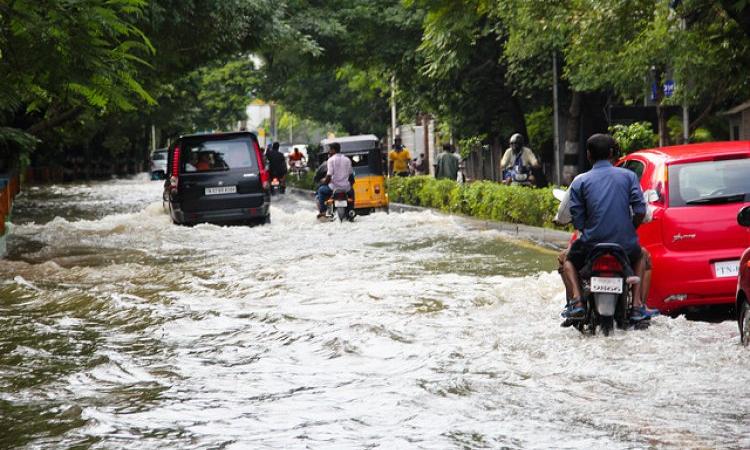
Most nations lack the political will to fight climate change: COP24
According to a recent report, Climate Change Performance Index (CCPI) 2019, released by Germanwatch and the NewClimate Institute at the 24th Conference of Parties (COP 24) to the United Nations Framework Convention on Climate Change, only a few countries have started working towards limiting global warming below 2°C or even keeping it at 1.5°C. India has ranked 11th in the index due to the country's low levels of per capita GHG emissions and an ambitious mitigation target for 2030. The index highlighted that the gap between the current emission levels and actual efforts to fight climate change is widening every day.
Pune eateries saving water through the 'half filled water glass' initiative
In a bid to save water and avoid its wastage, the Pune Restaurant and Hoteliers Association (PRAHA) has asked hotels and restaurants to adopt the “half-filled water glass” initiative. The PRAHA will also distribute theme cards on water conservation to hotels and restaurants to make the customers understand the rationale behind the initiative. As Pune hotels wake up to the need of saving water, the motels and farmhouses in Delhi has come under the Supreme Court radar for wasting food and water at wedding functions. The apex court also questioned the authorities for preferring commercial interest to public interest.
Yamuna is fighting to stay alive: Panel
According to the monitoring committee, less than two percent stretch of the Yamuna river accounts for 76 percent of pollution in the river. This stretch is from Wazirabad to Okhla in Delhi and bears the maximum discharge of untreated industrial and domestic wastes. The committee further pointed out that the river is fighting hard to stay alive and in order to rejuvenate the river, it is important to maintain a minimum environmental flow in it. The committee has recommended forming a team of scientists from the CPCB, the DPCC and other institutions like IIT Delhi or NEERI to carry out inspections and submit reports for remedial action.
Bullet train project: Gujarat farmers to take their fight to Japan
The farmers, villagers and activists in Gujarat have met the three-member Japan International Co-operation Agency (JICA) team during their two-day visit and have shown their opposition to the 508-km Mumbai–Ahmedabad High-Speed Rail Corridor (MAHSR). The farmers alleged that the project is anti-farmer and is in violation of the land acquisition rules. Moreover, the project is going to pass through the reserved forest, mangroves and around 80,000 trees will be felled. It will also affect the water sources and biodiversity of the entire corridor. The farmers have threatened the JICA team to take their fight to Japan if their demands are not met.
Environmentalists for 'Save Kodagu, Save Cauvery' campaign
As part of the 'Save Kodagu, Save Cauvery' campaign, nearly 500 environmentalists across Karnataka marched to Madikeri against the expansion of the National Highway 275 between Kushalnagar, Madikeri and Sampaje. The projects worth Rs 10,000 crore will pass through the fragile terrain, which is still recovering from the devastating floods in August. According to the activists' claims, the projects serve the vested interest of people while neglecting the plight of the local people and the ecology of Kodagu which is a principle catchment of Cauvery. The protestors have also asked for a greater allocation of flood relief plan for the region instead of these development projects.
This is a roundup of important news published between December 4 - 10, 2018. Also read policy matters this week.